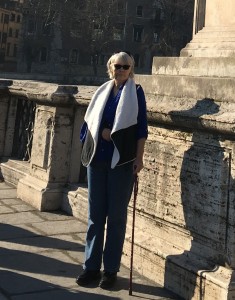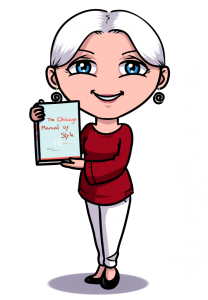Juliet tells Romeo that nothing’s in a name. “That which we call a rose, by any other name, would smell as sweet,” she says. And even Hamlet seems dismissive in his “words, words, words.” But after this past week, I must rebuff the beautiful maiden and challenge the churly prince.
Au contraire sweet Juliet. And as for Hamlet, well, a noble mind o’erthrown, and so forth.

Monday afternoon, my friend George sat beside me as we watched the moon creep through those final degrees toward totality. A short while earlier, thousands of people rested in lawn chairs or lay on blankets before the beautiful Greek Revival capitol building in Jefferson City, MO. On the stage, set up on the capitol steps, the Fort Leonard Wood military orchestra performed. Kids tossed footballs, played in the fountains, chased each other through the obstacle course of resting adults. Clouds drifted lazily by, bringing with them some unease.But when the final seconds ticked into totality, all eyes stared at the sky, and a roar went up from the multitude. Then just as quickly, the roar died into silence as, awestruck, we listened to the cicadas wailing in the mid-day dark, and the bright corona flared around the black ball of the sun. It was an eclipse, but suddenly that word, which had been mundane, even common, was charged with mystery and awe. It had put on a stunning new mantle.
A few minutes later George asked, “What word would describe the eclipse? What word would best communicate something beyond the ordinary, beyond the natural?” We rejected the word “supernatural” immediately as far too tired and burdened with the clutter of history. A dictionary reveals the problem: Supernatural: of or relating to an order of existence beyond the visible observable universe; especially, of or relating to God or a god, demigod, spirit, or devil; departing from what is usual or normal especially so as to appear to transcend the laws of nature: attributed to an invisible agent (such as a ghost or spirit). Nope, just doesn’t fit. What we had seen was governed entirely by the laws of nature.
The term preternatural offered itself, and we thought perhaps it would work. Preternatural: beyond what is normal or natural, extraordinary, exceptional, uncommon, singular, unprecedented, remarkable, phenomenal, abnormal, inexplicable, unaccountable; strange, mysterious, fantastic. That’s more like it. All these words accurately apply to the eclipse, and in fact, when taken together, they are, as a whole, a good summary of an abstract description of what happened in the sky above us. But our experience was not abstract in the least. Preternatural would not do.
Each of us had experienced the eclipse as something spiritual (notsupernatural), something natural that seemed to stop time, to pull us out of ourselves. And the response of thousands of people gathered there revealed that the immediate, shared human response was not just awe, but joy. A shout, clapping, and laughter erupted. We were all drawn totally into the moment, and in that moment there were no democrats or republicans, no liberals or conservatives, no northerners or southerners, no believers or atheists. There were only human beings sharing an experience of totality, an experience of total self-forgetting, of good will and unity. It must have been like what the ancient Israelites (or any other ancient peoples in a similar vein) felt when they first saw their God in a whirlwind or a pillar of fire.
Looking back now, those so-brief two-and-a-half minutes of totality, and the response that followed, tempt me to a bizarre comparison. Forgive the incurable English professor in me, but I think of the words of The Misfit in Flannery O’Connor’s short story “A Good Man Is Hard to Find” after he kills the meddling, bossy grandmother: “She would have been a good woman,” he says, “if it had been somebody there to shoot her every minute of her life.”
Perhaps you can see where this is headed. In some future aeon, after humanity has destroyed itself, I see a cosmic Misfit, sitting on an asteroid, looking down at earth and shaking its head. “They would have been a good species,” it will say, “if it had been a total eclipse to strike them with awe and wonder every minute of their life.”


 I have been studying the sixteenth century for around ten years and have written two complete novels set in that time. But except for reading primary sources, such as letters and journals, and a few trips to museums, everything I know I learned from books or the internet. I have not personally time traveled.
I have been studying the sixteenth century for around ten years and have written two complete novels set in that time. But except for reading primary sources, such as letters and journals, and a few trips to museums, everything I know I learned from books or the internet. I have not personally time traveled. Here’s a question I get asked quite often as a grammar guru: Can you end a sentence in a preposition?
Here’s a question I get asked quite often as a grammar guru: Can you end a sentence in a preposition?